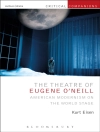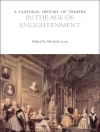The legacy of emigrés in the British film industry, from the silent film era until after the Second World War, has been largely neglected in the scholarly literature. Destination London is the first book to redress this imbalance. Focusing on areas such as exile, genre, technological transfer, professional training and education, cross-cultural exchange and representation, it begins by mapping the reasons for this neglect before examining the contributions made to British cinema by emigré directors, actors, screenwriters, cinematographers, set designers, and composers. It goes on to assess the cultural and economic contexts of transnational industry collaborations in the 1920s, artistic cosmopolitanism in the 1930s, and anti-Nazi propaganda in the 1940s.
Содержание
Acknowledgements
Chapter 1. Introduction: German-speaking Emigrés and British Cinema, 1925–50: Cultural Exchange, Exile and the Boundaries of National Cinema
Tim Bergfelder
Chapter 2. Life Is a Variety Theatre: E.A. Dupont’s Career in German and British Cinema
Tim Bergfelder
Chapter 3. Geza von Bolvary, Arnold Ridley and ‘Film Europe’
Lawrence Napper
Chapter 4. Inside the Robots’ Castle: Ufa’s English-language Versions in the Early 1930s
Chris Wahl
Chapter 5. Flamboyant Realism: Werner Brandes and British International Pictures in the Late 1920s
Kelly Robinson
Chapter 6. Famously Unknown: Günther Krampf’s Work as Cinematographer in British Films
Michael Omasta
Chapter 7. ‘German, or still more horrible thought, Russian – at any rate, it is un-English!’ A Wide Shot of Exile, Emigré and Itinerant Activity in the British Film Industry in the 1930s
Amy Sargeant
Chapter 8. Extending Frames and Exploring Spaces: Alfred Junge, Set Design and Genre in British Cinema
Sarah Street
Chapter 9. Lost in Siberia: Ernö Metzner in Britain Laurie
N. Ede
Chapter 10. ‘Be kvite kviet, everybody, please!’: Paul L. Stein and British Cinema
Christian Cargnelli
Chapter 11. Allegories of Displacement: Conrad Veidt’s British Films
Gerd Gemünden
Chapter 12. Anton Walbrook: The Continental Consort
Michael Williams
Chapter 13. From ‘Alien Person’ to ‘Darling Lilli’: Lilli Palmer’s Roles in British Cinema
Barbara Ziereis
Chapter 14. ‘You call us “Germans”, you call us “brothers” – but we are not your brothers!’: British Anti-Nazi Films and German speaking Emigrés
Tobias Hochscherf
Chapter 15. Carl Mayer: Years of Exile in London
Brigitte Mayr
Chapter 16. Music for the People: Escapism and Social Comment in the Work of Hans May and Ernst Meyer
Geoff Brown
Chapter 17. I Know Where I’m Going! Hearing Germanic Music in the Scottish Isles
K.J. Donnelly
Chapter 18. ‘An Animated Quest for Freedom’: Mátyás Seiber’s Score for The Magic Canvas
Florian Scheding
Notes on Contributors
Bibliography
Index
Об авторе
Christian Cargnelli is a film historian based in Vienna and teaches film history at the University of Vienna. He holds a Ph D in Film Studies from the University of Southampton and has published widely on film exile and exile film. His co-edited volumes include Aufbruch ins Ungewisse: terreichische Filmschaffende in der Emigration vor 1945 (1993), Schatten. Exil: Europäiche Emigranten im Film Noir (1997), and Carl Mayer, Scenar[t]ist (2003). He is the editor of Gustav Machaty — Ein Filmregisseur zwischen Prag und Hollywood (2005).












